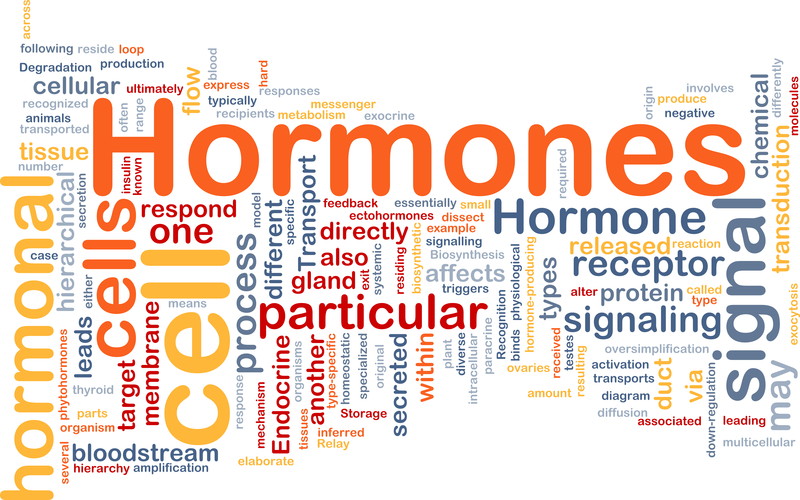By James Javier
The Early Menopausal Symptoms to look out for
Every woman regardless of lifestyle will have to go through menopausal symptoms. For most women, the hormonal turmoil associated with the transition marks the last trial before the end of all menstrual cycles—which bring tough experiences themselves. And while most women do not experience these symptoms until their 50s, it is definitely possible for these to appear in your 30s.
The specific symptoms of menopause may be very different for each individual, but there are particular physiological and psychological changes that are more commonly observed. To make sure you are prepared for one of the last natural phases in a woman’s life, here are the early menopausal symptoms you should watch out for:
Hot Flashes (Vasomotor Symptoms)
This is probably the most common symptom of menopause in its early and ongoing stages. If you have experienced sudden hotness in specific areas of your body, specifically the neck, face, and chest that is accompanied by sweating, then you could be suffering from vasomotor symptoms—more commonly known as hot flashes. Aside from the hormonal changes in the onset of menopause, hot flashes may also be caused by excessive stress, alcohol, sleep deprivation, and other events that may disturb the hypothalamus, which is responsible for regulating your body’s temperature.

Keep in mind that night sweats are likely the result of warm room temperature or a hot flash at night. Nevertheless, it may increase stress and worsen hormonal imbalances by disrupting sleep. A quick relief for hot flashes is a sip of cold drinking water. Just remember that this isn’t a permanent solution.
Vaginal Dryness (Atrophic Vaginitis)
With the reduction of estrogen, a sex hormone in females, the body may not provide sufficient lubrication to a woman’s extremities. Over time, the vaginal walls become thinner and lose moisture as estrogen levels decline further. This condition may cause irritation, reduced sex drive, and pains during sexual intercourse.
Evidently, vaginal dryness may also occur due to other conditions not related to menopause. Common remedies involve applying topical solutions to temporarily restore moisture and lubrication.
Reduced Libido
Insufficient lubrication is not the only reason why the transition to menopause can affect the sexual activity of women. Upon menopause, the body decreases the levels of hormones responsible for stimulating libido—testosterone and progesterone.In turn, hormonal imbalances may occur and equate to a great deal of stress. Hormone fluctuations may also lead to breast pains, which may also reduce a woman’s sex drive.
Emotional Distress
Another common menopausal symptom is the frequent occurrence of mood swings. First of all, remember that the emotional responses of women during the transition to menopause may vary in terms of severity. Although some women might express their emotional distress in a mild and self-contained manner, this does not lessen the toll that these emotions may inflict on the body both physically and psychologically. In the end, remember that the extreme stress that may arise from all the hormonal fluctuations related to menopause can compromise a woman’s overall health.
Some of the most common emotional symptoms of menopause include:
- Anxiety
- Depression
- Low Self-Confidence
- Increased Fear
- Forgetfulness
- Irritability
- Rage
- Sleeplessness
While these effects may not manifest themselves immediately into physical symptoms, they can have dire consequences if left ignored. Keep in mind that counseling and family support is important for women who are experiencing the emotional roller-coaster of going through the menopausal stages.

Other Possible Symptoms
The menopausal symptoms involve a great deal of disturbances in the body’s hormonal system. In turn, it is possible to experience the uncommon symptoms that may affect a woman’s physical and emotional well-being. Here is a list of such symptoms:
- Gastrointestinal Problems
- Diminished Skin Health
- Hair Loss
- Headaches
- Body Pains
Considering Hormone Replacement Therapy or (HRT)
Remember that there are plenty of options out there to make this transition easier for you. One popular treatment is Hormone Replacement Therapy, or (HRT), which can alleviate the early physical symptoms of menopause as well as increase energy, improve mood, and restore sex drive. Furthermore, it’s been proven to be more effective when employed early, so it is best to plan ahead.

When in doubt, it is best to arrange an appointment with your doctor if you have been experiencing any of the symptoms mentioned above for an accurate diagnosis. It is also a smart move before opting for Hormone Replacement Therapy. Lastly, always remember that family is every woman’s greatest strength. In such times, their support and understanding shall prove to be invaluable.
Author bio:
James Javier is a health student and a part-time blogger of Genemedics. He usually shares his research and findings regarding the improvement and maintenance of health. When he’s not busy studying, he usually blogs to different websites in hopes to increase his writing portfolio.